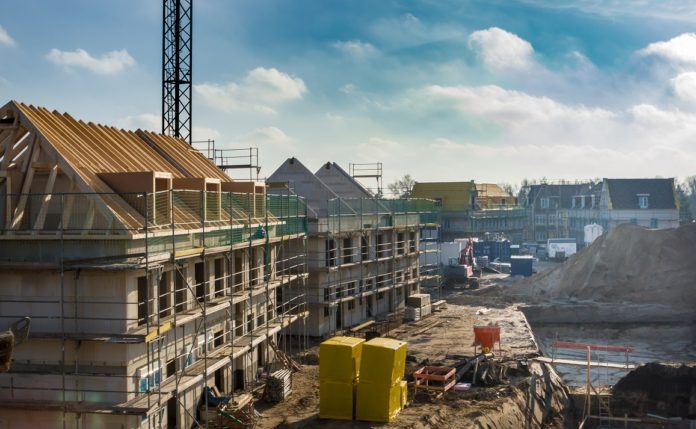The Building Cost Information Service (BCIS) has forecast that building costs will increase by 15% over the next five years, while tender prices will rise by 17% over the same period.
The Service’s latest five year building forecast noted that after falling by 2.1% in 2023, new construction output is expected to contract by a further 3.2% in 2024 before returning to growth, with total new work output over the period (2024-2029) forecast to grow by 21%.
Annual growth in tender prices has continued to ease, falling from 8.6% in Q1 2023 to 2.9% in Q1 2024. The BCIS expects annual growth in tender prices to continue to fall, reaching 1.6% by Q4 2024.
Meanwhile, annual growth in the BCIS Labour Cost Index is forecast to grow by 18% between Q1 2024 and Q1 2029. Site rates have been rising in line with inflation and the pace of annual growth in labour costs is expected to slow down.
The BCIS Materials Cost Index has shown negative annual growth for the past two quarters and is forecast to drop further by 0.8% in Q1 2024. Over the next five years, BCIS forecasts it to grow by 13%.
Commenting on the report, Dr David Crosthwaite, chief economist at BCIS, said: “We’re seeing recessionary pressures feeding through to construction from the wider economy; the cost of borrowing impacts on new work, particularly in the private sector, because it’s a major barrier to investment in a stagnant economy. That’s why we expect private industrial, commercial and housing work to bear the brunt of the declines in output this year.
“Added to that, new orders data, which is an indicator of upcoming projects and the volume of work available in the market, is trending down. The unfavourable investment climate continues to have a negative impact on growth.
“Despite recently having had the Spring Budget and publication of the National Infrastructure and Construction Pipeline, the government’s plans for construction remain unclear. The fact this is an election year adds uncertainty because it’s not business as usual and, as the political calendar shrinks, government spending plans end up being stalled.”
Dr Crosthwaite added: “Although firms are generally reporting stable materials prices, everyone is watching what happens in the Red Sea and the Middle East. Even where there’s not a direct inflationary effect on prices because of the delays or hikes in shipping costs, we’re hearing that the increased risk is being factored into prices.
“We know that contractors are still being cautious about selecting projects to bid on and that there has been difficulty in finding contractors to bid on large, complex projects.
“After lurching from what seems like one crisis to the next, the industry is still dealing with a lot of uncertainty. Even if the UK economy comes out of recession straight away, this persistent low growth seems to have become characteristic, and it’s the same in construction.
“The Bank of England’s Monetary Policy Committee has voted to maintain the base rate at 5.25%. A decrease could help get construction and the wider economy growing. If they wait until the summer to decrease it to 5%, it may be too little too late.”




